February 2019 National eResearch Newsletter
Welcome to the February 2019 AeRO eResearch Newsletter
Message from the AeRO CEO
I’m pleased to invite you to the Collaborative Conference on Computational and Data Intensive Science 2019 (C3DIS 2019), the week of 6 – 10 May at the National Convention Centre, Canberra.
C3DIS aims to build a national community of practice of scientists, researchers, and computing, data and information management specialists from publicly funded Australian research organisations.
Come along to attend workshops on machine learning or high performance computing, discuss data management practices, find collaborators facing similar challenges, and much more.
Learn more and register at www.c3dis.com and submit a presentation, poster, or workshop idea.
Sam Moskwa, AeRO CEO.
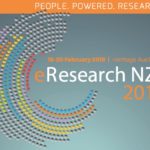 |
eResearchNZ 2019: Sharing Expertise Across the Tasman
On 18-20 February, New Zealand’s eResearch conference will celebrate its 10th year, gathering innovators and experts from research communities across and beyond NZ for three days of discussion, collaboration, and community-building. We’re pleased to be hosting colleagues from CSIRO, Pawsey Supercomputing Centre, AARNet, Australia Research Data Commons, Australian Data Archive, and Monash University who’ll be sharing their expertise, best practices, and innovations in supporting research using digital tools.
Full Programme: http://eresearch2019.org.nz/programme/. |
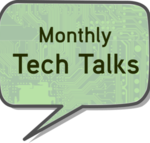 |
Tech Talk – Earth Science Information Quality: 1 March 2019
In March, the Tech talk will be on Earth Science Information Quality. An earlier time than usual (11:00 AEDT) will allow US speakers from the ESIP Information Quality Cluster (Earth Science community http://wiki.esipfed.org/index.php/Information_Quality) to present. Look for the links to the event at: Monthly Tech Talk Meetup page https://www.meetup.com/monthlytechtalk/.
The Tech Talks are a monthly gathering to showcase and discuss the technical side of Australia’s research infrastructure. |
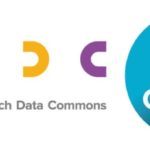 |
Unlocking the Value from Publicly Funded Clinical Research Data
Australian invests a large amount of money in clinical trials, cohort studies and registries each year. Often, these data sets lay dormant, inaccessible and isolated with significant untapped latent value. Further investment in expanding the digital infrastructure can realise significant additional value from these datasets.
A workshop has been organised by CSIRO and ARDC in Canberra on 6 March 2019 from 9:30am to 3:30pm AEDT, and potentially another mid-2019, with the aim of understanding the current environment, investigating the premise, and if appropriate developing a ‘National framework for capturing value from clinical data’. |
 |
Trusted Data Repositories (TDR) – Community of Practice – Expression of Interest due 10 March
To help organisations have trustworthy data repositories, particularly the CoreTrustSeal certification, ARDC will bring together a community of practice. By sharing experiences and documents through the community of practice, effort will be reduced for all involved to gain CoreTrustSeal certification. ARDC has already worked with CSIRO, the National Imaging Facility and Australian Data Archive to achieve CoreTrustSeal certification in 2016-2018.
If you are from the Australian Research or Research Infrastructure Community and are interested in joining the TDR Community of Practice, please email richard.ferrers@ardc.edu.au by 10 March.
More details and space for questions/discussion can be found at the community document – https://docs.google.com/document/d/1uDuAAunlS9QCxKRKWhXvDAL7UCtoo6jDvJ14Qw0Xjkc/edit#. |
| Webinar on Nextflow: Reproducible Computational Workflows across Clouds and Clusters
Large analysis workflows are fragile ecosystems of software tools, scripts and dependencies, often not irreproducible.
Nextflow is a reactive workflow framework and a domain specific programming language which follows the dataflow paradigm and offers an alternative, and arguably superior, approach to developing, executing and sharing pipelines.
ARDC and EMBL-ABR has arranged a webinar that follows the steps required for developing sharable, version controlled, container-backed workflows, which can be seamlessly executed across different environments. This leverages Nextflow’s integration with code and container image hosting services such as GitHub and Docker Hub, and out of the box support for various HPC cluster schedulers and the Amazon AWS cloud.
Thu, Mar 14, 2019, 13:00-14:00 AEDT.
More information and registration at https://register.gotowebinar.com/register/8408436403729692931. |
|
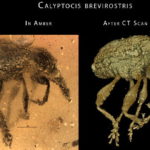 |
NCI Helps Visualise Cretaceous Weevils
One hundred million years ago in present-day Burma, a random assortment of insects, flowers, reptiles and even tiny dinosaurs became trapped in the oozing resin of trees in an ancient forest. Now, almost 100 specimens from the treasure trove of Burmese amber are revealing the secrets of Cretaceous weevils.
To look in detail at these specimens, researchers turned to CT-scanning and NCI’s Drishti visualisation technology. Developed by NCI’s Dr Ajay Limaye, Drishti allows researchers to visualise complex data sets in 3D – once scanned and processed, you have a 3D model to manipulate, zoom in on and describe.
See http://nci.org.au/research/unique-extinct-fossils-microscope/. |
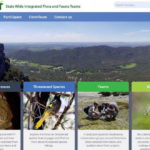 |
Statewide Flora and Fauna Teams Portal Relaunch
The State Wide Integrated Flora and Fauna Teams (SWIFFT) portal, hosted by Federation University Australia’s Centre for eResearch and Digital Innovation, has undergone major updates and was recently relaunched. Evolving from a Wiki page at its inception to today’s comprehensive, interactive website, SWIFFT draws together data and contributions from ecologists, citizen scientists and environmental stakeholders at all levels from community through to government.
The SWIFFT platform offers a range of information sharing tools to access data, knowledge, research and events from a wide range of conservation stakeholders. The website is also aimed at building and supporting communities of citizen scientists to capture and document data, stories and audio-visual content on Victorian flora and fauna.
See www.swifft.net.au. |
 |
AAL Awarded $2M to Establish Gravitational Wave Data Centre
AAL thanks the Australian Government for $2M of new funding towards the establishment of an Australian Gravitational Wave Data Centre. The funding, made available through the National Collaborative Research Infrastructure Strategy (NCRIS), will enhance Australia’s position as a world leader in data-intensive gravitational wave research. The Gravitational Wave Data Centre aims to process data from mega-science facilities like the Advanced LIGO gravitational wave detectors in the US and the forthcoming Square Kilometre Array (SKA) mega-radio telescope being constructed in Australia and South Africa.
For more information, see http://www.astronomyaustralia.org.au/news/aal-is-delighted-to-be-awarded-2m-towards-the-establishment-of-the-gravitational-wave-data-centre. |
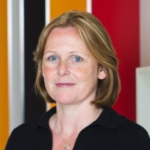 |
ARDC has New CEO, Rosie Hicks
Rosie Hicks has now been appointed as the Chief Executive Officer of the Australian Research Data Commons (ARDC), and will take up her new role from Monday 15 April 2019.
Rosie brings a wealth of experience to the role which will be fundamental to the ARDC in building a truly national capability, with global reach and a collaborative mindset.
Rosie has expertise and extensive knowledge of the Australian research infrastructure sector, and leadership experience as the former CEO of the Australian National Fabrication Facility (ANFF).
For more details, see https://ardc.edu.au/news/introducing-ardcs-new-ceo/. |
 |
Sensitive Data – How Do You Do Yours?
AARNet is seeking to co-design and co-develop solutions to the sensitive data challenges with its members and customers, which include Australia’s universities, medical research institutes, public funded research agencies and healthcare facilities providing teaching, training and supporting research.
With this aim in mind and following on from the success of a session held at the eResearch Australasia Conference in 2018, we are co-hosting a session at the eResearch New Zealand Conference on 19 Feb with ARDC and University of Waikato to better understand issues and challenges related to researchers working with sensitive data. If you’re attending eResearch New Zealand, please come along.
See more at https://news.aarnet.edu.au/aarnet-steps-up-to-help-research-community-address-sensitive-data-challenges/. |
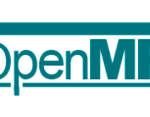 |
Call for Sumissions: Global OpenMP Coming to Auckland, NZ
This September, the global OpenMP community is coming to Auckland, NZ to present and discuss applications, tools, techniques, libraries and trends relating to parallel programming with OpenMP. Calls for Submissions are now open for OpenMPCon 2019 (9-10 Sept) and IWOMP 2019 (11-13 Sept), both hosted at the University of Auckland.
More information:
|
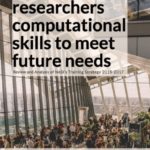 |
Insights & Impacts from a National Training Strategy
Since 2012, New Zealand eScience Infrastructure (NeSI) has been building New Zealand researchers’ computational abilities, with a focus on developing advanced computational skills. NeSI has recently released a report that reflects on its training activities and their impacts over a three-year period. In addition to looking back, the report also looks ahead at how future NeSI training initiatives could be deployed to maximise impact.
More Information: https://www.nesi.org.nz/news/2018/12/growing-researchers-computational-skills-meet-future-needs. |
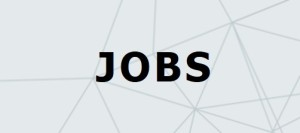 |
AeRO Jobs Board
Don’t forget that AeRO is helping spread the word on the latest eResearch job opportunities. We post jobs immediately to https://twitter.com/AeRO_eResearch and also update on our website at http://aero.edu.au/eresearch-careers/. This is a free service for the eResearch community – to advertise a position, simply email loretta@aero.edu.au. Current vacancies include: Computational Biology Research Officer, Digitisation Project Officer, Metadata Analyst, HPC Senior Science Advisor, Visualisation and Data Analytics Specialist, eResearch Engagement Specialist, eResearch Solutions Specialist, eResearch Training Manager, ICT Infrastructure Engineer, AAI Software Developer, Multiple eResearch Analyst and Research ICT Positions. |
Contributions
This newsletter is based on contributions provided by members of the eResearch community, and draws on news articles and newsletters published across the sector. The Newsletter is published around the 16th of each month.
Please send any contributions (max. 100 words, plus a link and image) or pointers to any other relevant articles or newsletters to editor@aero.edu.au
Archives of these Newsletters are held at http://aero.edu.au/newsletters/.
Click HERE to add yourself to the eResearch Mailing List.
Thanks,
—AeRO Newsletter Editor

